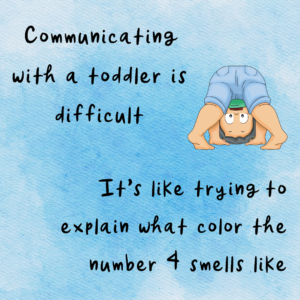Ready to sleep better tonight? Here are my Top 5 Tips for helping your little one sleep better!
How to keep my toddler in bed during the night?
Keeping your toddler in their bed all night
We all remember the 1st time the special things happened.
The 1st time you bring your baby home, the first time you get that sweet little smile from them,
the 1st time they get to roll over, start crawling, walking, mumbling words and so the list goes on.
Fast forward a couple years later and they are running around and talking nonstop! The joys of having a toddler in your house and you are trying to keep up with them. But how do you keep your toddler in bed during the night?
After a long and busy day, it is time for bed and the anxiety of bedtime is building up, because you know the challenges that are laying ahead. You have a busy day the next day and you need your sleep, to be on top of it, how are you going to keep your toddler in bed during the night so everyone can have a good night’s rest? How do you keep your toddler from having multiple wake ups and not wanting to climb in bed with you in the middle of the night?
Sharing a bed with a toddler means restless sleep the rest of the night and guaranteed you will have a punch in the face or a kick in the back sometime during the night. And then the thought is creeping into your head of how you wished they were still on the crawling phase, even if it was just for one night so you can feel energized again after a good night’s sleep.
Luckily, I have some tips for you to start implementing that will help you resolve this and keep your toddler in bed at night.
Setting Boundaries
This should be the most important thing to have as a parent. Setting boundaries! You are shaping this small individual to become an incredible person one day and having boundaries will get you right there. Teaching them to follow rules and having structure in their lives are so important. Children thrive on routine and knowing what will happen and when it will happen. If it is acceptable for them, to climb into bed with you over the weekends but not during the week, they don’t understand the inconsistency and this will lead to more anxiety and confusion. Sticking to your decisions and setting reachable boundaries will have everyone feel more at ease.
Limiting Screen Time

I remember when growing up we didn’t have things like tablets or screen time, we played outside and entertained ourselves with toys. Now I cannot go without the technology and quickly asking “Alexa” something is so convenient. We have to adjust with different times and technology. We cannot deny screen time to our children just because we didn’t have it growing up and we turned out fine… 😉 Screen time can have a lot of benefits but at the same time it can have some con’s as well. Making sure your children are watching or playing age-appropriate programs and games. There are so many educational programs out there for them to watch. I am all for it, but here comes the thing… How much is too much? Having a 3-year-old on his tablet or in front of the tv for 4 hours a day… that might be pushing it a little bit. According to the AACAP, they recommend, children between the ages of 2-5 can have 1 hour of screen time during the week. https://www.aacap.org/AACAP/Families_and_Youth/Facts_for_Families/FFF-Guide/Children-And-Watching-TV-054
I always suggest to my clients that I work with to cut screen time at least 90 minutes before bed to get optimal rest.
Bedtime Routine

Having a consistent bedtime routine with a toddler can send off signals to their mind and body telling them it is time to unwind and get ready for bed. Making it a fun and enjoyable time for both child and parent can lead to a successful night. Let them feel like they are in control to make decisions for themselves. Let them have options to choose from
•The toys that we are playing with in the bath, which pajamas are we wearing tonight? What bedtime story can we read? Choose a soft toy to sleep with them in bed tonight.
Having them have options and feeling a little bit more in control will set the tone for the night, but again keep your boundaries in mind. If your rule is one bedtime story, don’t let them walk over you to keep reading two or three stories. Stick to the limits you are setting for them.
Making sure your child is getting the right amount of sleep everyday according to his age will also play a role in having a good bedtime routine, to make sure to have them in bed before they are becoming overtired. Have a look at this healthy sleep duration chart I have on my website to give you an idea to check if you are on track more or less. https://unplugsleepsolutions.com/sleep-coaching-freebies/
Consequences
Stepping into the toddler phase. Children become excellent negotiators and boundary pushers. Trying to explore the opportunities of what they are after and to see what they need to do to get what they desire. If they find a way to get what they want, they will continue to try until they succeed.
If your toddler is getting up in the middle of the night to come and crawl in bed with you. Or using the excuse of wanting to go to the bathroom or drink water just to see what is going on outside of the bedroom. It is time to set those consequences in place.
Always start off by listening to your child and then giving a warning first.
It might be that they are really feeling sick, or something is wrong. You want to make sure to let them know that they are heard.
Walk them back to bed and give them a cuddle and a kiss and let them know that it is time for bed and that there will be consequences if they leave their bed again. Hopefully this will work… if not… it is time for the consequences.
Implementing Consequences.
The question is, what is the right consequence? A consequence should be something unpleasant for them, that’s the whole idea of implementing it. You need to find the balance of something your child doesn’t like and something that will throw them into a complete meltdown. You do not want to traumatize your child during a consequence but only let them understand that something unpleasant will happen if they are not back in their bed.
I absolutely love this Train Sticker Reward Chart from Super Savvy Sarah. https://www.supersavvysarah.com/printable-sticker-chart/
You can either remove a sticker if your child is getting out of bed or tell them they can add a sticker in the morning if they stay in bed. You will know what will work best for your child and their personality.
Another consequence could be by closing the door of your child’s bedroom and keeping it closed for a minute. Remember that you do not want to traumatize your child but only let them experience the unpleasantness of a consequence. By keeping the door closed for 30 seconds to a minute and achieving that they will learn. Keep on repeating this and increasing the time if you have to. However do not give in to their demands and stick to your boundaries. Keeping the door closed would be my last resort as there are so many other consequences you can implement. Having positive reward charts where the child is working towards something that he really wants.
Be patient.

Each child is different, there are many different ways and approaches that you can implement to reach amazing results.
Working with children over the last 10 years has given me great insight to truly understand that there is a variety of ways to handle situations according to the child’s personality. The number one rule is to stay calm at all times and have a soft voice when setting your boundaries and implementing consequences. Getting worked up has never resulted in a positive outcome.
Give yourself some credit! Raising children is the most difficult job there is. Each family has a different approach, and everyone is just trying their best. If you ever feel that you need help with your toddler’s sleep issues you can book a call with me so we can have a chat. Book a call here.


